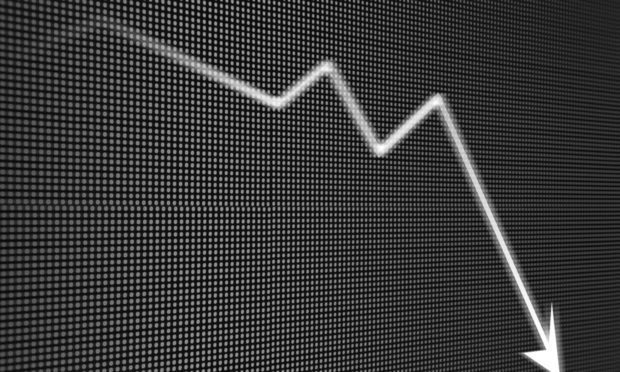Law School Applications Are Down. Will COVID-19 Spur a Late Comeback?
The coronavirus pandemic has upended the law school application cycle, but some experts predict a surge in late applicants hoping to ride out the rough job market.
June 03, 2020 at 01:22 PM
5 minute read
The law school applicant pool looks likely to shrink this year, ending a two-year resurgence that legal academics had hoped would become a sustained recovery to offset years of decline.
Applicants to American Bar Association-accredited law schools are down 2.5% from this point in the cycle last year, according to the latest data from the Law School Admission Council. By early June 2019, schools had received 95% of all applications for the coming fall. If that timing holds true for this year, schools have little chance of making up that lost ground on applicants.
But the impact of the coronavirus pandemic is a looming question mark over the law school admissions landscape, and it's not clear whether historical application trends and patterns will play out this time around. The most obvious change this year is the disruption of the Law School Admission Test. The council canceled both the March and April in-person LSATs due to the coronavirus. But it rolled out a pared-down, online version of the exam in May. The LSAT Flex, as the remote exam has been dubbed, is being administered for the second time next week and again in July. Thus, it's possible that schools will see a wave of late applications from people who planned to take the LSAT in March and April but had to take the May LSAT Flex instead. (Score from that first LSAT Flex, which approximately 10,000 took at home, will be released June 5.) There is typically a surge of applications submitted immediately after an LSAT score release, noted council president Kellye Testy in an interview Wednesday.
"COVID created a period where nothing happened, and it shifted the timeline down," Testy said. "What we might have usually seen happen on May 1 could happen more like May 30 this year. Right now, we're 2.5% off last year. I personally think it's amazing that it's only 2.5% given all the disruption."
Another wrinkle in the admissions picture is whether this year's crop of graduating college seniors will make last-minute decisions to ride out a rough job market in law school and other graduate programs, as they did in the aftermath of the 2008 recession. (For law schools, 2010 remains the high-water mark for the applicant pool, illustrating that interest in graduate school is traditionally countercyclical with the strength of the economy and job market.) The COVID-19 pandemic hit relatively late in the admissions cycle, and college seniors who were spooked by their bleak economic prospects weren't able to switch gears and take the LSAT Flex until last month due to the canceled exams.
"Earlier, a more robust economy seemed to be putting a damper on interest in law school," said University of Iowa law professor Derek Muller, who writes about admissions trends on his blog, Excess of Democracy. "My sense is that matriculation rates might actually rise—I think students who've applied for law school are probably more inclined to get into a three-year J.D. program, even with an uncertain fall, rather than face the more uncertain job market. But that'll take a little time to see."
Testy said she has heard from many applicants who say that they didn't originally intend to pursue law school this fall but are going that route due to canceled job offers and internships. Many law schools have extended their application deadlines to accommodate those latecomers, she noted. Meanwhile, a council survey of law school applicants found that the vast majority are still planning to enroll this fall despite uncertainty over what form their education will take.
"It's at 85% or more, of those who have decided they still will attend," Testy said. "They don't love that it might be online, but that wouldn't significantly affect their decision."
It has been a tumultuous and sometimes unpredictable decade for law school admissions. After peaking in 2010, the national applicant pool contracted for six straight years. By 2016, the number of applicants was down nearly 38% from 2010. But the applicant pool leveled off in 2017 before spiking nearly 8% in 2018—an unexpected surge that was dubbed the "Trump Bump" on the idea that national politics were pushing young people to pursue legal careers. Law school applicants were up another 3% in 2019.
An increase in applicants doesn't necessarily translate into more students, Muller noted. New law student enrollment dipped slightly in the fall of 2019 despite more applicants—likely a combination of schools being more selective about who they admit and some applicants deciding not to pursue law school after all.
Despite the overall decline in applicants for the fall thus far, council data shows increases in the number of applicants with strong LSAT scores. The number of applicants with scores falling between 165 and 169 is up more than 6% over last year. The number of scores between 170 and 174 is up 1%, and scores in the highest band—175 to 180—are up nearly 7%. (Those high scores represent just 1% of all applicants, however.) By contrast, each score band from 164 on down saw a decline from the previous year.
This content has been archived. It is available through our partners, LexisNexis® and Bloomberg Law.
To view this content, please continue to their sites.
Not a Lexis Subscriber?
Subscribe Now
Not a Bloomberg Law Subscriber?
Subscribe Now
NOT FOR REPRINT
© 2025 ALM Global, LLC, All Rights Reserved. Request academic re-use from www.copyright.com. All other uses, submit a request to [email protected]. For more information visit Asset & Logo Licensing.
You Might Like
View All
University of New Hampshire Law School Launches Specialized Health, Life Sciences Program

Supreme Court Takes Up Case Over Approval of Religious Charter School

The Week in Data Jan. 24: A Look at Legal Industry Trends by the Numbers

Trending Stories
Who Got The Work
J. Brugh Lower of Gibbons has entered an appearance for industrial equipment supplier Devco Corporation in a pending trademark infringement lawsuit. The suit, accusing the defendant of selling knock-off Graco products, was filed Dec. 18 in New Jersey District Court by Rivkin Radler on behalf of Graco Inc. and Graco Minnesota. The case, assigned to U.S. District Judge Zahid N. Quraishi, is 3:24-cv-11294, Graco Inc. et al v. Devco Corporation.
Who Got The Work
Rebecca Maller-Stein and Kent A. Yalowitz of Arnold & Porter Kaye Scholer have entered their appearances for Hanaco Venture Capital and its executives, Lior Prosor and David Frankel, in a pending securities lawsuit. The action, filed on Dec. 24 in New York Southern District Court by Zell, Aron & Co. on behalf of Goldeneye Advisors, accuses the defendants of negligently and fraudulently managing the plaintiff's $1 million investment. The case, assigned to U.S. District Judge Vernon S. Broderick, is 1:24-cv-09918, Goldeneye Advisors, LLC v. Hanaco Venture Capital, Ltd. et al.
Who Got The Work
Attorneys from A&O Shearman has stepped in as defense counsel for Toronto-Dominion Bank and other defendants in a pending securities class action. The suit, filed Dec. 11 in New York Southern District Court by Bleichmar Fonti & Auld, accuses the defendants of concealing the bank's 'pervasive' deficiencies in regards to its compliance with the Bank Secrecy Act and the quality of its anti-money laundering controls. The case, assigned to U.S. District Judge Arun Subramanian, is 1:24-cv-09445, Gonzalez v. The Toronto-Dominion Bank et al.
Who Got The Work
Crown Castle International, a Pennsylvania company providing shared communications infrastructure, has turned to Luke D. Wolf of Gordon Rees Scully Mansukhani to fend off a pending breach-of-contract lawsuit. The court action, filed Nov. 25 in Michigan Eastern District Court by Hooper Hathaway PC on behalf of The Town Residences LLC, accuses Crown Castle of failing to transfer approximately $30,000 in utility payments from T-Mobile in breach of a roof-top lease and assignment agreement. The case, assigned to U.S. District Judge Susan K. Declercq, is 2:24-cv-13131, The Town Residences LLC v. T-Mobile US, Inc. et al.
Who Got The Work
Wilfred P. Coronato and Daniel M. Schwartz of McCarter & English have stepped in as defense counsel to Electrolux Home Products Inc. in a pending product liability lawsuit. The court action, filed Nov. 26 in New York Eastern District Court by Poulos Lopiccolo PC and Nagel Rice LLP on behalf of David Stern, alleges that the defendant's refrigerators’ drawers and shelving repeatedly break and fall apart within months after purchase. The case, assigned to U.S. District Judge Joan M. Azrack, is 2:24-cv-08204, Stern v. Electrolux Home Products, Inc.
Featured Firms
Law Offices of Gary Martin Hays & Associates, P.C.
(470) 294-1674
Law Offices of Mark E. Salomone
(857) 444-6468
Smith & Hassler
(713) 739-1250









